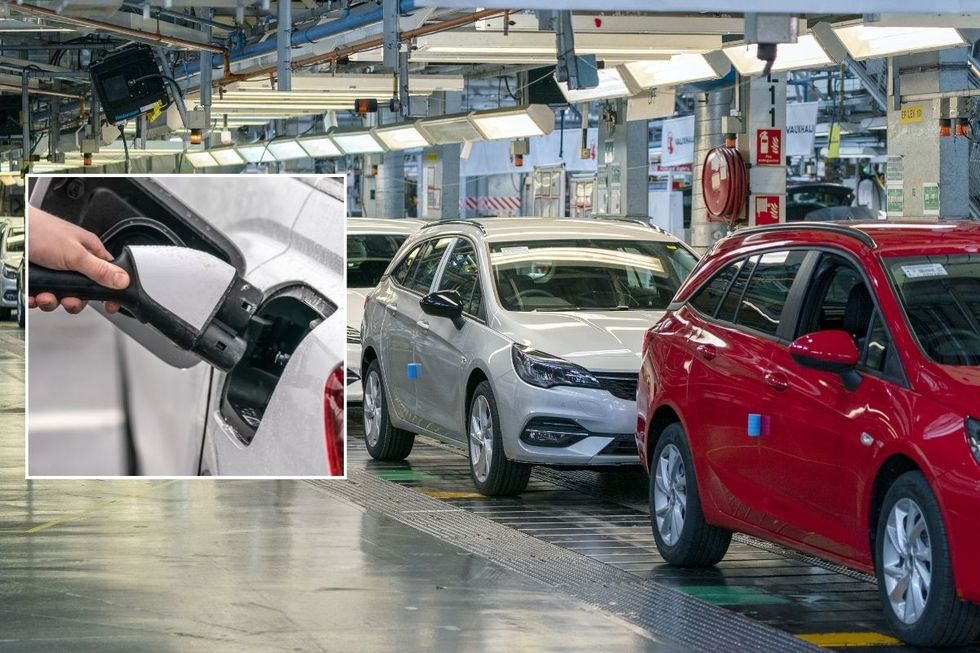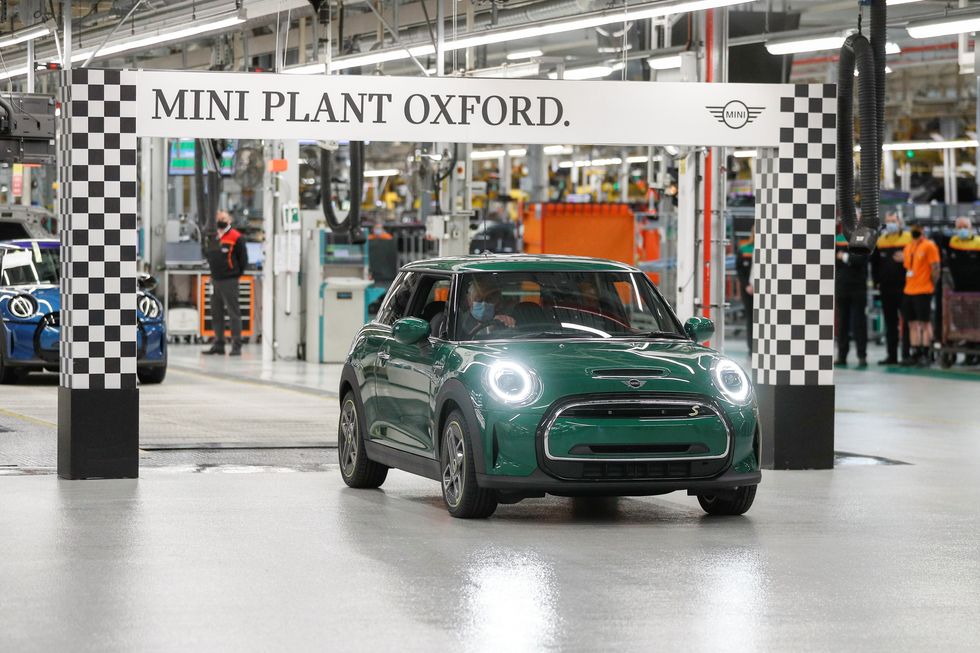Electric vehicle targets are expected to be scaled back under new plans from the Government amid a downturn in demand for new EVs and pressure from struggling manufacturers pushing back against previous rules.
At present, the Zero Emission Vehicle (ZEV) mandate outlines that 10 per cent of all van sales and 22 per cent of car sales will need to be electric by the end of the year, with targets raising each subsequent year.
By the end of 2025, these targets will rise to 16 per cent for vans and 28 per cent for cars. At the end of the decade, these figures are expected to reach 70 per cent (vans) and 80 per cent (cars).
However, Business Secretary Jonathan Reynolds is expected to use a speech this evening to announce new flexibilities available to manufacturers as part of the ZEV mandate.
Do you have a story you’d like to share? Get in touch by emailing[email protected]

Manufacturers are required to have 22 per cent of sales come from zero emission vehicles by the end of the year
PA
While targets have not been formally unveiled for years between 2030 and 2035, all cars and vans will need to be electric by 2035. This is the assumed policy under Labour, although it has hinted that it could allow for the sale of hybrids after 2030 or 2035.
GB News understands that the Government will not be making any changes to the planned phase-out of new petrol and diesel cars from 2030.
The Government has reaffirmed that it is committed to the 2030 phase-out date, despite the “global challenge the industry is facing”. It is expected to bring forward a consultation “in due course”.
Reports have been met with concerns from industry experts, including Quentin Willson, founder of FairCharge, who said: “Ministers should not dilute the UK’s EV ambitions.
“Long-term Government policy has made us the second most successful EV market in Europe – an advantage we should strengthen, not weaken. Our ZEV mandate targets are world-leading – don’t let the intense lobbying from legacy auto ruin them.”
The announcement is expected to come on the same day as the owner of Vauxhall, Stellantis, unveiled plans to shut its Luton van factory and move operations to its Ellesmere Port plant.
In a statement, the brand said it would consolidate its UK manufacturing of light commercial vehicles in Cheshire through a £50million investment.
It added that this would lead to greater production efficiency in a bid to become the best-selling LCV manufacturer in the world.
READ MORE: Nigel Farage just issued stern warning over China but is it valid?
Ben Nelmes, CEO of EV think tank New AutoMotive, added: “The UK’s world-leading electric car targets are supporting billions of investment in new charge points and electric vehicle manufacturing.
“The last UK Government made the mistake of relaxing electric car targets, with disruptive consequences for businesses and motorists – the new Government should not repeat the mistakes of the past.”
It also comes after Nissan called on the Government for “urgent action” in relation to the ZEV mandate, with the Japanese brand citing a slowdown in consumer demand and a fall in sales.
Bosses criticised the system of fining manufacturers, saying that they would have to purchase from EV-only brands, none of which manufacture in the UK, prompting concerns that brands are subsidising EV sectors in other countries.
LATEST DEVELOPMENTS:

The ZEV mandate has been praised as ‘world-leading’ to help motorists switch to electric vehicles
PA
The Business Secretary and Transport Secretary Louise Haigh met with the Society of Motor Manufacturers and Traders (SMMT), as well as major manufacturers to discuss the Zero Emission Vehicle mandate targets and whether any changes could be made.
Dan Caesar, CEO of Electric Vehicles UK, commented on the expected changes, saying: “The switch to electric vehicles is creating jobs now and this will increase significantly in the immediate future and open up opportunities for the UK.
“Clean air and sustainable employment are surely the legacy we all want, and the existing zero emissions mechanisms are critical.”